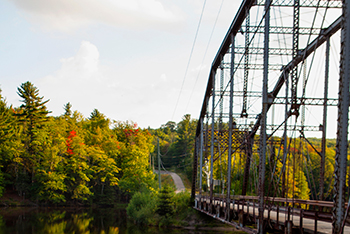 Many of us assume that a lawyer practicing in a small town in rural Wisconsin does so because he or she was born and raised there. That frequently is the reason. But not always, and certainly not as often as we think.
Many of us assume that a lawyer practicing in a small town in rural Wisconsin does so because he or she was born and raised there. That frequently is the reason. But not always, and certainly not as often as we think.
I’ve talked with thousands of Wisconsin lawyers in the last 15 years. When I talk with small-town lawyers who grew up in large urban areas, I often ask what brought them to northern or rural Wisconsin. The answers vary, but in many ways they are the same. “There weren’t any jobs in Madison or Milwaukee, so I thought I’d try it up here for a couple of years. Thirty years later I’ve built a life, a practice, raised a family, and wouldn’t have changed a thing.” Or, “I was part of the back-to-the-land movement in the 1970s, but I got to stay because I had a job. Everyone else had to go back to Chicago.” Or, simply, “That’s where the jobs were.”
One young lawyer was even more direct. From one of Wisconsin’s many small cities, he decided to move to northern Wisconsin a few years ago. He says he’s doing well even though he is still new to the community. When he notices the ages of the other lawyers, he knows he will be a top dog sooner rather than later. The three lawyers I quoted above all had successful law careers and then were elected judge.
As this month’s lead article points out, there is a growing shortage of lawyers practicing in rural areas. At the same time, too many lawyers are struggling to make a living in Milwaukee and Madison. Wisconsin is not alone in this dilemma, and our challenges are not as severe as those faced by more rural states such as South Dakota and Nebraska, but it’s time to begin to address the issue.
There is a growing shortage of lawyers practicing in rural areas. At the same time, too many lawyers are struggling to make a living in Milwaukee and Madison.
Any move is a matter of perspective and trade-offs. If you practice in a big city, you will experience traffic jams, long commutes, and many encounters with lawyers you don’t know, but you probably can find a place that sells sushi at midnight. In a rural setting, you’ll likely know the lawyers and judges, traffic jams will be two cars long only if you are following a combine moving from one field to another, and you’ll get to see the stars at night, but you won’t find midnight sushi.
My cousin was visiting us in Madison a couple of weeks ago. A Chicago native like me, she lives in suburban Atlanta and faces a two-hour commute, traveling about 10 miles per hour, to get to work downtown. She said she has never been able to get over the fact that you can travel 10 minutes or so from downtown Madison and see cornfields. After 40 years in Madison, that seems perfectly natural to me. It’s all a matter of perspective.
Photo: County Road 510 Bridge, which crosses the Dead River in Michigan’s Upper Peninsula. Scott Dupras, The L Gallery.net.
